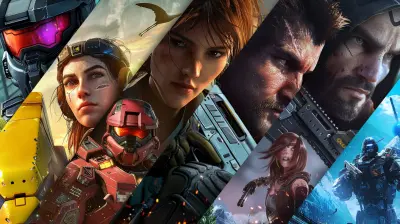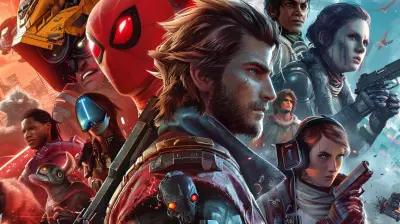The Role of Voice Acting in Personalized Character Creation
14 August 2025
Ever sat there tweaking your character’s nose curvature for 45 minutes, only to hear them speak in a voice that screams “generic space hero #7”? Yep, we’ve all been there. Whether you're crafting a brooding rogue with a dark past or a bubbly bard who barrels headfirst into trouble, one detail can make—or break—the immersion: voice acting.
Voice can be the cherry on top of your custom character sundae… or the weird pickle someone accidentally threw in. So, let’s dive into why voice acting plays a massive role in personalized character creation, and how it's reshaping the gaming experience for us wannabe digital legends.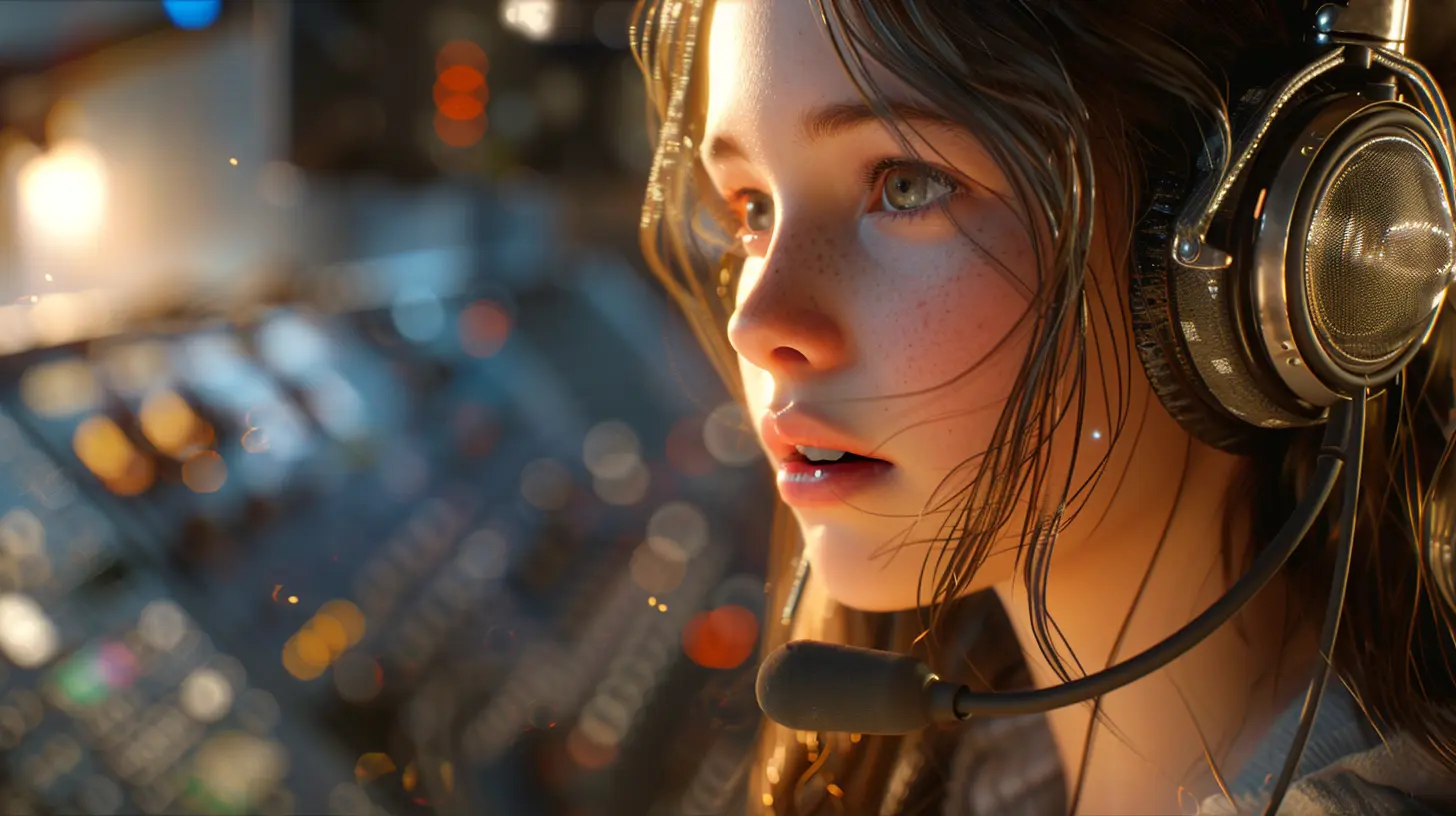
Why Voice Acting Matters in Character Creation
Let’s get one thing straight: appearance is just half the story. Your character might look like a majestic half-elf warrior with a scar over one eye and armor shinier than a new iPhone, but if they sound like a tax accountant giving a TED Talk on spreadsheets, the illusion crumbles faster than a Jenga tower in an earthquake.Voice is what gives your character soul. It injects emotion into every line, from battle cries to awkward flirtations. When done right, voice acting makes your custom character feel real—not just to you, but to everyone in the game world.
From Pixels to Personality
Think about it. Without voice acting, your character might still have cool animations and some expressive eyebrows, but their emotional range is limited to "grunts," "sighs," and "NPC says hi." Voice can convey depth: sarcasm, rage, grief, joy, or absolute terror when you walk into a boss fight 30 levels too early.And let’s be honest—how many of us have replayed scenes just to hear our character nail a line? It's okay. No judgment here. We've all flexed in front of a mirror before a boss fight.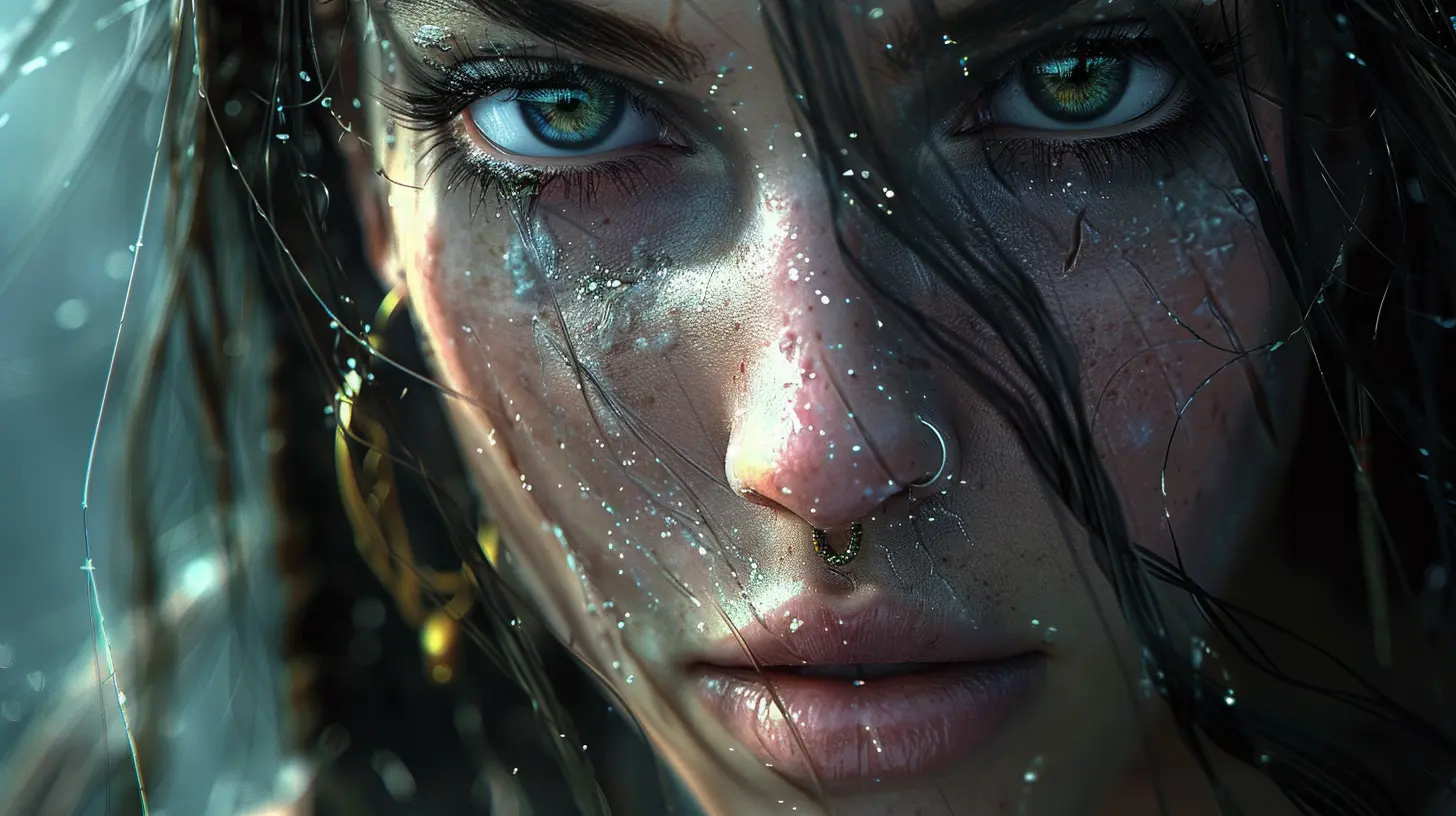
The Rise of Personalized Voice Options
Back in the day, RPGs handed you a couple of character models and maybe—maybe—a British accent toggle. But today? We’re spoiled. Many modern games now offer multiple voice options for character creation, complete with different accents, tones, and emotional deliveries. Some even let you pitch-shift or modulate the voice to fit your fantasy better. Want to make your ogre sound like a Shakespearean actor? Go for it!Games Doing It Right
Let’s tip our hats to a few games that are crushing it in this department:- Cyberpunk 2077: Gave us multiple voice options depending on gender and even integrated voice with dialogue choice in a seamless way. V’s voice wasn’t just a menu toggle—it was part of who they were.
- Saints Row Series: These games are basically the Disneyland of voice personalization. You could walk around as a disco-loving maniac with a posh British accent—and somehow it worked.
- Baldur’s Gate 3: Not only do your created characters have personality in every line, but the narrator also responds uniquely based on choices, class, and more. It’s like D&D with a voiceover budget.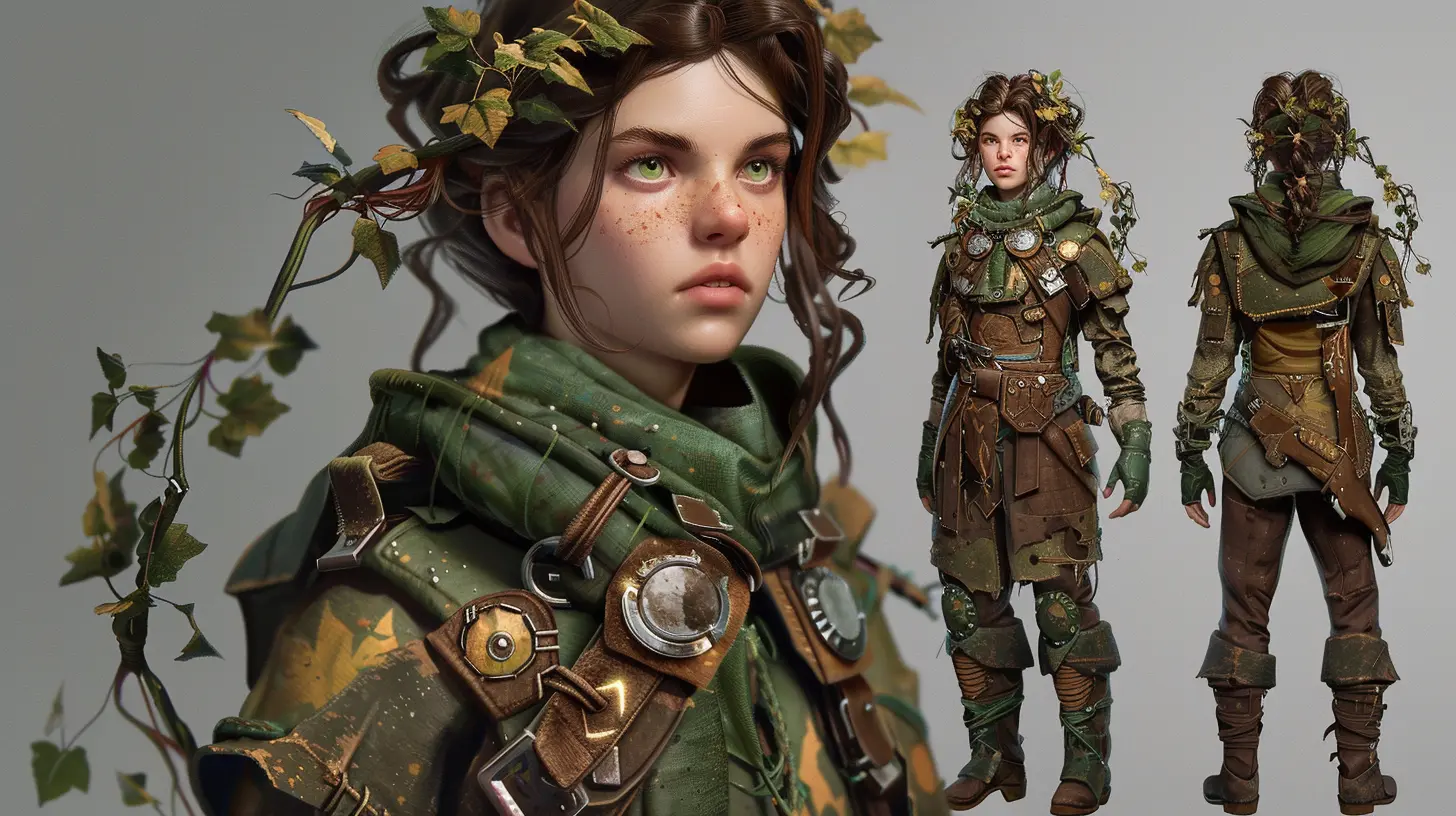
Emotional Connection: Voices That Stick
When you design your perfect hero (or villain), you want to feel connected. You want to hear them and think, “Yes. That’s my character.” It’s like hearing your own voice on a voicemail but... cooler.Voice acting creates that emotional connection. It makes your character’s victories more thrilling, their failures more heartbreaking, and their one-liners more meme-worthy. There’s something deeply satisfying about hearing your arcane wizard scream “FOR THE WEAVE!” before launching a fireball into a crowd of goblins. It’s poetry. Chaotic poetry.
Not Just for Talkers
Even in games where the protagonist is supposed to be silent (ahem, classic RPGs), voice lines for battle, emotes, and reactions still add flavor. Ever notice how much more alive your character feels when they grunt, shout, or yell “I NEED HEALING!” every 8 seconds? That’s voice acting doing its magic.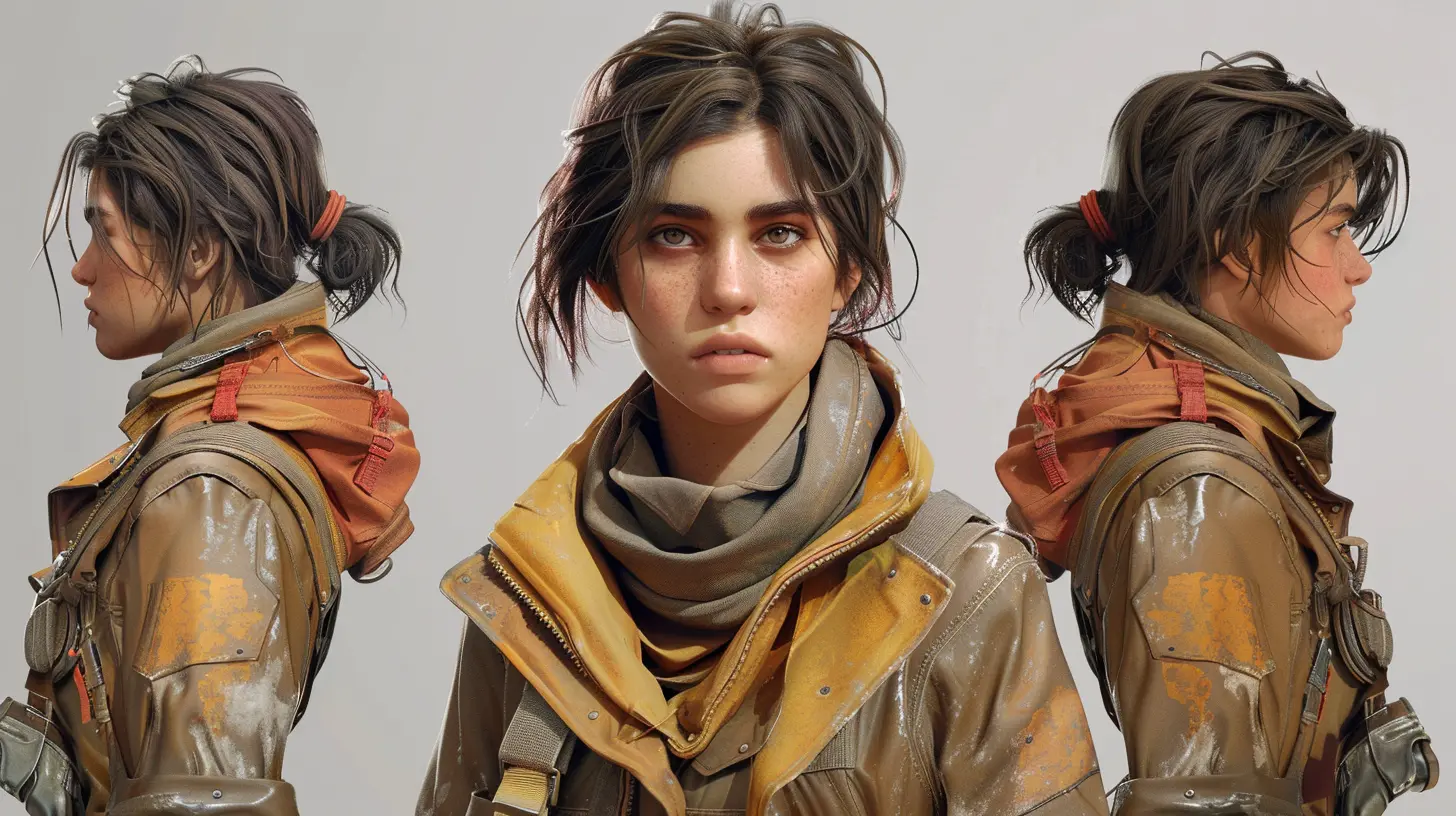
Voice Acting vs. Text-Based Dialogue: Who Wins?
Okay, time for a spicy debate. Are voice-acted dialogues better than old-school text-based ones?Short answer: yes.
Long answer: it depends. (Classic cop-out, I know.)
Text gives players ultimate freedom. You read it, you interpret it, you imagine your character's tone. But let’s be real—most of us are here for the movie-quality cutscenes and fully-voiced sass.
Voice acting enhances pacing, emotional weight, and most importantly, it saves us from reading 6,000-word monologues from tired dwarves who just want to tell us about their family mine.
The Tech Behind the Magic
Voice acting isn't just about getting someone with a nice voice into a booth. It’s a whole production. But now, with tech like AI voice modulation, procedural dialogue generation, and real-time emotional sync, things are getting wild.Imagine this: you create a character, tweak their voice pitch and cadence, and the game generates emotional voice lines dynamically based on your decisions. It’s not that far-fetched in 2024.
Tools like voice synthesis and voice matching are already being explored. Yes, there’s some concern about AI replacing human actors (and rightfully so), but when used ethically, it can empower more personalization without sacrificing quality.
The Voice Actor’s Secret Sauce
Let’s not forget the humans behind the voices. These actors breathe life into our pixelated avatars. They bring charisma, emotional depth, and sometimes even improv that becomes legendary.Voice actors study scripts, work on timing, and often try multiple takes to capture just the right tone. That snarky retort your rogue makes? Someone probably recorded that line upwards of 20 times with different variations.
Without their talents, our characters would just be moving mannequins shouting into the void.
Bad Voice Acting: A Tragic Tale
Of course, it’s not all unicorns and well-delivered monologues. Bad voice acting is like throwing a wrench into a symphony orchestra.Ever had your ultra-serious boss fight interrupted by your character blurting out a line that sounds like it came from a YouTube ad audition? Yeah, it kills the mood faster than lag in a PvP match.
Poor voice acting can absolutely wreck immersion and make your otherwise awesome character feel like they were voiced by a malfunctioning GPS.
What We Want In Future Games
So, what does the future hold? As gamers—aka professional nitpickers—we’ve got a wishlist:- More voice variety: Give us gruff voices for halflings, soft voices for barbarians. Go wild.
- Emotion sliders: Let us tweak not just pitch, but the emotional tone of voices. Crank the sarcasm to 11.
- Gender-neutral voice options: Big win for inclusion and making characters that reflect you.
- Dynamic voice changes: Imagine your character's voice growing more confident as their story progresses. Chills, right?
- Less repetition: Lookin’ at you, NPCs who say the same line every 3 feet.
Voice Acting As A Storytelling Tool
Beyond just sounding cool, voice is a narrative weapon. The way a character talks reveals their upbringing, their confidence (or lack thereof), and even their secrets. It’s not just what they say—it’s how they say it.Accents, speech patterns, pacing—all these can add layers to your custom character’s backstory without ever needing a wall of exposition text.
A soft-spoken assassin? A bombastic paladin with a god complex? The voice is the storyteller, and the player is the puppet master. Beautiful chaos.
Wrapping It Up: Your Voice, Your Story
So here’s the deal: voice acting in character creation isn’t just fluff. It’s not just a gimmick. It’s a cornerstone of immersive, personalized gaming. Whether you're saving galaxies, slaying dragons, or just vibing in a post-apocalyptic wasteland, your character's voice is their identity.It defines how they interact with the world—and how the world reacts to them. It’s the difference between “That’s a cool character I made” and “That’s MY character.”
So next time you’re fiddling with voice options, don’t rush it. Find the one that makes you smirk, nod, or give an approving “heck yeah.” Because when your character finally opens their mouth and sounds like they’ve got your energy? That’s when the magic happens.
all images in this post were generated using AI tools
Category:
Character CustomizationAuthor:

Pascal Jennings
Discussion
rate this article
1 comments
Desiree McTier
Voice acting adds a unique layer to character creation! I'm curious about how these performances influence player attachment and immersion. Excited to explore this connection further!
August 26, 2025 at 2:14 PM

Pascal Jennings
Absolutely! Voice acting enhances emotional depth and personality, fostering stronger connections between players and characters, ultimately enriching the immersive experience. I'm glad you're excited to delve into this important aspect!
